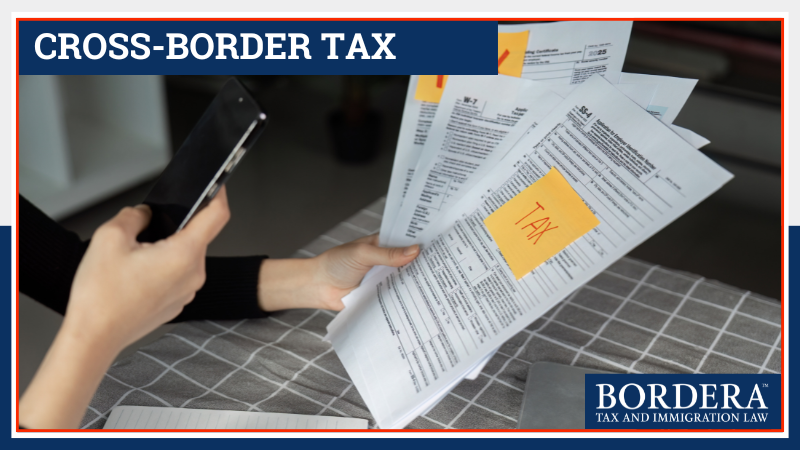
Political uncertainty, shifting U.S. tax policies, and evolving global dynamics have prompted a growing number of high-net-worth Americans to look north for stability and opportunity. Canada offers predictable governance, world-class healthcare and education, and a more balanced tax environment for families focused on protecting and growing wealth. With compliance pressures on the horizon, affluent families are evaluating Canada as a strategic base for residence and investment. From lifestyle quality to cross-border planning advantages, the timing has rarely been better to make the move. Contact Bordera Corporate Tax and Immigration Law to schedule a consultation.
For decades, Americans have viewed Canada as a friendly neighbour rather than a financial strategy. That mindset is changing. Political volatility in the U.S. and rising taxation concerns have wealthy families re-evaluating where they want to secure their futures. Canada’s stability, rule of law, and social infrastructure provide a rare sense of predictability for long-term planning. For many, relocating north is less about leaving something behind and more about gaining peace of mind, lifestyle quality, and greater fiscal control.
Canada’s policy environment is comparatively steady, allowing investors and business owners to plan years ahead without fear of abrupt regulatory changes. This consistency supports intergenerational wealth preservation and provides confidence for those seeking global diversification.
Universal healthcare eliminates the unpredictability of private insurance, while Canadian universities such as Toronto, McGill, and UBC offer world-class education at a fraction of U.S. costs. Families relocating for opportunity also gain long-term value in access to affordable, high-quality care and education.
Low crime, clean air, natural beauty, and property security continue to place Canada among the world’s most livable countries. Culturally, it is similar in many ways but also different in others from the United States. Affluent families appreciate the ability to maintain privacy and safety while enjoying cosmopolitan amenities in cities like Vancouver, Toronto, and Calgary.
Canada consistently ranks in the global top tier for quality of life, inclusiveness, and governance. Its reputation as a welcoming, progressive nation adds social credibility to financial relocation.
For high-net-worth Americans, Canada offers an unexpectedly competitive tax environment—especially for estate and wealth planning.
No Estate Tax: Canada imposes no estate or inheritance tax of its own. . U.S. citizens remain subject to all U.S. taxes unless they renounce U.S. citizenship, but Canada does not impose an additional estate tax (as do some U.S. states).
Predictable Capital Gains: Canada does have a “death tax” in that it deems Canadian-resident decedents to have sold their assets upon death, with their estates paying the corresponding capital gains rates on assets passed to individuals other than Canadian-resident spouses. But Canada’s capital gains regime is transparent and stable, giving investors a clear view of future obligations.
Treaty Protection: The Canada–U.S. Tax Treaty prevents double taxation and defines how income, pensions, and gains are allocated. Canada’s “death tax” on Canadian assets, for example, is creditable against the U.S. estate tax (and vice versa).
Under current law, U.S. citizens remain subject to U.S. worldwide taxation until formal expatriation. Comprehensive pre-move planning: covering trust reviews, entity restructuring, and compliance strategy, is essential to avoid exposure.
In the first half of 2025 alone, 3,785 U.S. citizens became Canadian permanent residents, one of the largest surges on record. Canadian immigration lawyers report record inquiries from Americans seeking a “Plan B” that combines financial protection with lifestyle stability.
For some affluent Americans, relocating to Canada isn’t an escape—it’s an elevation. The decision blends lifestyle enhancement with strategic asset protection and global flexibility. With careful coordination between legal, tax, and immigration advisors, families can structure a move that supports both personal goals and long-term wealth.
Contact Bordera Corporate Tax and Immigration to schedule a consultation and begin designing your cross-border strategy today.
Political volatility in the United States increasingly makes Canada an appealing option for long-term stability and predictable taxation. If you are planning a move to Canada, contact Bordera Tax and Immigration Law today for help with cross-border taxes, renouncing your U.S. citizenship, or terminating your U.S. green card.
Yes. Once a person becomes a Canadian tax resident, worldwide income is taxable, though the treaty prevents double taxation.
Yes, U.S. citizens remain subject to U.S. tax until renunciation of citizenship or formal termination of a green card. However, it is common for U.S. citizens to owe nothing to the IRS on their U.S. tax returns because they receive credit for Canadian taxes paid.